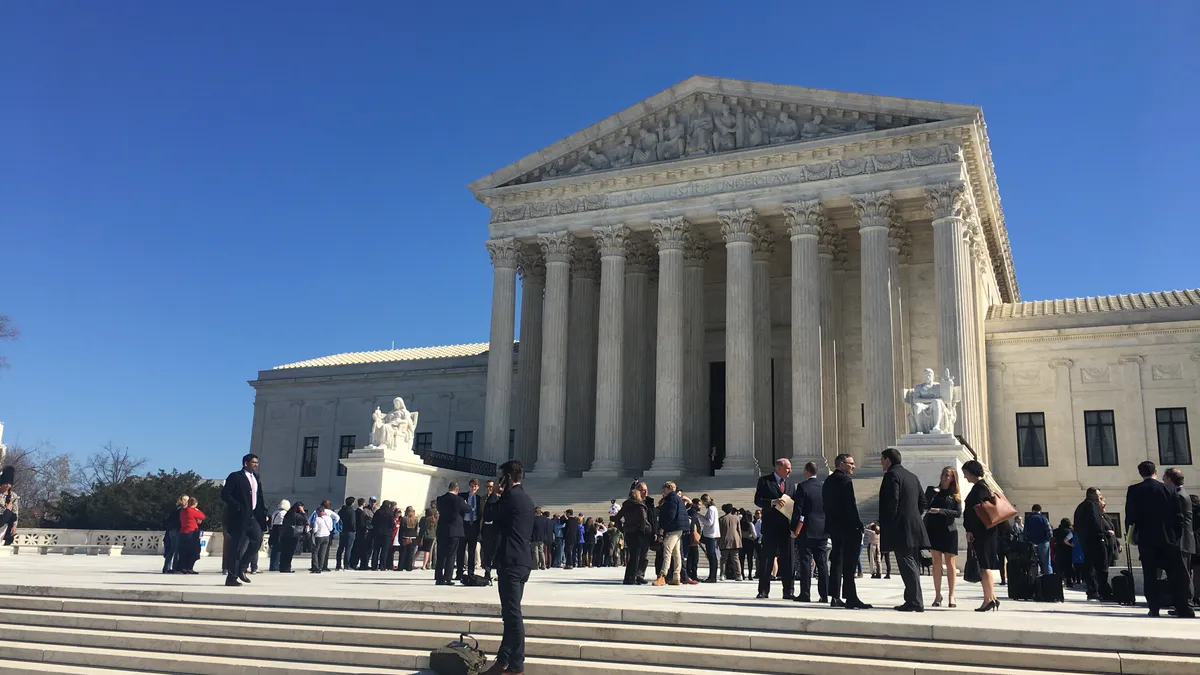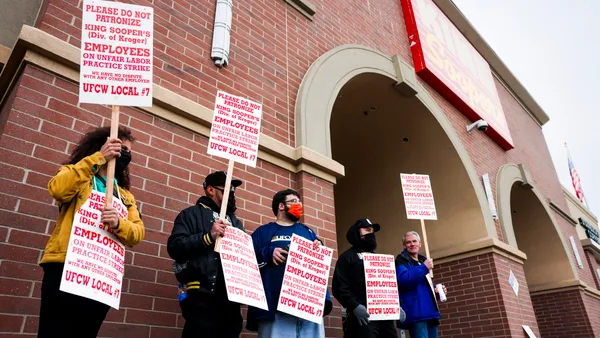Dive Brief:
- The Supreme Court has agreed to hear a case that will look at whether or not the amount of money retailers earn from Supplemental Nutrition Assistance Program (SNAP) sales should be public information. The case is based on an appeal by the Food Marketing Institute to a lower court ruling last year that SNAP sales data must be made available under the Freedom of Information Act.
- Last year's ruling by the 8th U.S. Circuit Court of Appeals stemmed from a 2011 lawsuit filed by Argus Leader Media, which publishes the Argus Leader newspaper in Sioux Falls, South Dakota. The court ruled that the U.S. Department of Agriculture and FMI had not sufficiently shown that releasing sales data would cause undue competitive harm, and thus trigger an exemption to FOIA. FMI appealed to the U.S. Supreme Court to hear the case, and the high court stayed the 8th Circuit Court's decision as it weighed whether or not to accept.
- More than 42 million Americans receive assistance through the SNAP program, and more than 300,000 retailers — including grocers, convenience stores, mass merchandisers and dollar stores — accept benefits through the program.
Dive Insight:
The two court decisions so far in this case have gone in favor of Argus Leader Media. In 2016, South Dakota District Court judge Karen Schreier ruled that the U.S. Department of Agriculture, which had originally denied the release of SNAP sales data, had not sufficiently proven that the release of such data would harm store sales. After the USDA said it would not appeal the decision, the Food Marketing Institute appealed to the 8th Circuit Court, which last year sided with Argus.
However, FMI and other industry interests will likely feel optimistic about this latest appeal given the makeup of the Supreme Court, which leans conservative following the appointment of Justice Brett Kavanaugh late last year.
"We are delighted that the U.S. Supreme Court has agreed to hear our appeal in Food Marketing Institute v. Argus Leader Media,” Leslie G. Sarasin, FMI's president and CEO, said in a release. "It is a critically important case that will clarify the protections from disclosure applicable to confidential business information that private parties submit to the government."
At issue is a provision in the Freedom of Information Act — exemption 4 — that prevents the release of "trade secrets and commercial or financial information obtained from a person [that is] privileged or confidential." FMI has argued that businesses should determine what falls under these guidelines, while Argus Leader Media has argued that it seeks taxpayer data rather than confidential business records.
Cory Myers, news director for the Argus Leader, said in a news story last year: "As I’ve said before, at its heart, this is about fundamental rights. Taxpayers need to know where their money is spent. This information has importance beyond South Dakota as SNAP is one of the nation's biggest safety net programs."
The $867 billion Farm Bill that passed the House last month preserved funding for SNAP sought by retailers after a prolonged back-and-forth between Republicans and Democrats. Industry trade groups had sought to protect sales data under an earlier version of the bill, but that provision didn't make it into the final version.













